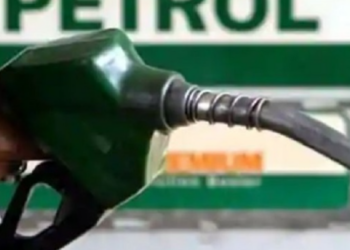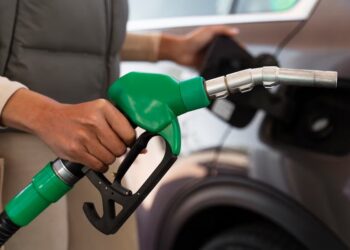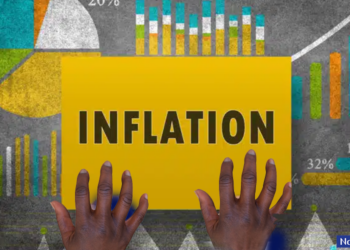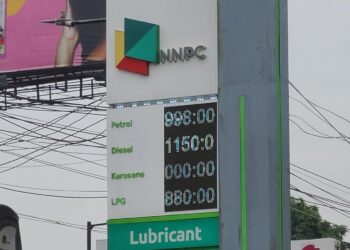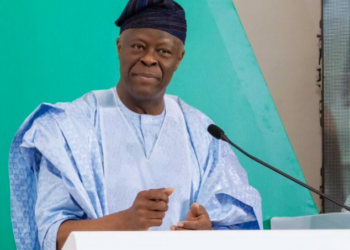Presidential candidate of the Zenith Labour Party (ZLP), Chief Dan Nwuanyanwu, told Channels Television during a recent interview, that he will ensure Nigerians buy fuel at N100 per litre if he wins next month’s election.
The presidential candidate also claimed that criminals involved in oil bunkering will not allow the country’s refineries to work, as they will rather prefer that fuel is sold at N1,000 per litre. He said:
- “I will sell fuel for N100 in this country. I have calculated it. All these refineries will be put to use within three, or four months. At the same time, simultaneously, we are going to install modern refineries in each geopolitical zone.”
Meanwhile, some factors could hamper Nwuanyanwu’s decision to reduce the pump price to N100 per litre. These factors include:
Landing costs: As the candidate said, his government will set up modern refineries in each geopolitical zone in the country. Doing this will take some time and no one knows when. Before that, the country will keep importing refined petroleum products. Landing costs which are associated with shipping expenses will factor into the cost of fuel in the country.
The proposed output of the Kaduna, Warri, and Port Harcourt refineries, the Dangote refinery as well as current modular refineries are not enough to meet domestic demand for fuel, so there will still be importation when all refineries are active.
Also, as long as the Russia-Ukraine war is still on, supply chains will be affected and this could factor into shipping costs, which will continue to affect fuel prices. Shipping expenses will also impact the delivery of equipment meant for setting up modern refineries. To put this into perspective, in September 2022, Mele Kyari, the Group Chief Executive Officer (GCEO) of the Nigerian National Petroleum Company said the landing cost of PMS stood at N327.68 per litre.
Varying fuel costs: Chief Nwuanyanwu will need to consider the challenge of varying costs of fuel in Nigeria. Currently, the country does not have a uniform price across states. The official price for fuel in Nigeria today is N165 per litre, however, Nigerians are buying the commodity at higher prices. Nigerian National Petroleum Company filling stations are even selling at N190 per litre in Abuja, the capital city.
- According to December 2022 data from the National Bureau of Statistics (NBS), fuel prices are not the same in all the states of the federation. The data shows that in December 2022, states in North Central are paying an average of N209.44 per litre for fuel, with the highest being N216 per litre.
- States in the North East paid an average of N209.64 per litre, with the highest being N218.89 per litre.
- States in the North West paid an average of N205.68 per litre, with the highest being N213.93 per litre.
- States in the South East paid an average of N204.44 per litre, with the highest being N215.91 per litre.
- States in the South-South paid an average of N200.02 per litre, with the highest being N204.67 per litre.
- States in the South West paid an average of N207.15 per litre, with the highest being N210.42 per litre.
However, a Nairametrics survey in December 2022 showed that in the South-East region, fuel prices were higher than the average shown in the NBS data. Filling stations in Imo state were selling at N400 per litre, also in Anambra, motorists bought fuel at N285 per litre. In Enugu, fuel was sold for N265 per litre and in Umuahia, fuel was sold for N305 per litre.
Local delivery costs: The Independent Marketers Association of Nigeria (IPMAN) and other players in Nigeria’s oil industry have alleged that it is expensive to get fuel from private depot owners.
In November 2022, the Deputy National President of the Independent Petroleum Marketers Association of Nigeria (IPMAN), Zarama Mustapha told Channels Television that private depot owners collecting petrol at the approved price from the NNPC are refusing to sell to the independent marketers at the price approved by the Nigerian Midstream Downstream Petroleum Regulatory Authority (NMDPRA).
At the time, he stated that NNPC depots sell petrol at N148 per litre, but private depot owners sell to IPMAN at N195 to N210 per litre. In less than three months, the prices have increased.
In January 2023, the National Operations Controller at the Independent Petroleum Marketers Association of Nigeria (IPMAN), Mike Osatuyi, told the Cable, that marketers are getting fuel at higher costs. According to him, they are buying the product at N230 per litre and N240 per litre, without transportation. Transporting fuel between states also comes with costs, which will factor into the pump price for end consumers.
Low prices equal low oil investments: Even if Chief Nwuanyanwu wants to advocate for low crude prices to reduce pump prices, it could reduce crude oil investments. In its November 2022 Public Finance Review report, the World Bank stated that the Nigerian government could shield consumers from the volatility of global oil prices by requiring oil companies to sell crude at prices that are just enough to cover the cost of production and delivery to domestic refineries. But this approach would lead to forgone earnings for oil companies and discourage investment in new oil production by artificially lowering the returns to investment. The World Bank stated:
- “Without new capital inflows, oil production would swiftly fall, as Nigeria’s oilfields have a natural production decline rate of about 10 to 15% a year. Meanwhile, the government’s oil revenue would plunge because taxes are levied on profits, which would be far lower, and because the new investment would fail to arrest the decline in production.”
Nigeria is already dealing with the exit of oil majors from onshore and offshore assets in different parts of the country due to the global shift to renewables as well as the shift to more profitable oil and gas assets in other African countries.
Fuel smuggling tied to low pump prices: In the World Bank report earlier cited, it was said that the differences in fuel prices between Nigeria and its neighbours provide powerful financial incentives to smuggle fuel out of the country. Fuel prices in the neighbouring countries are more than double the official price in Nigeria, and as much as 250% higher in Ghana. Such large price differences create potential profit margins that easily offset the risks and costs involved in smuggling. If fuel is sold for N100 per litre, it only increases smuggling.
For the record: Aside from the factors listed above, some supply issues need to be resolved in the country’s oil and gas industry, so operators can thrive and investments can flow. In May 2022, it was reported that private refineries operating mainly in Imo, Delta and Edo have been mostly dormant due to the refusal of the NNPC to supply crude to the local oil facilities, especially as they have been unable to fully source the required commodity from private crude suppliers. Case in point, the Edo Refinery only just received its first crude oil supply in 2023 after being certified ready in 2021.








